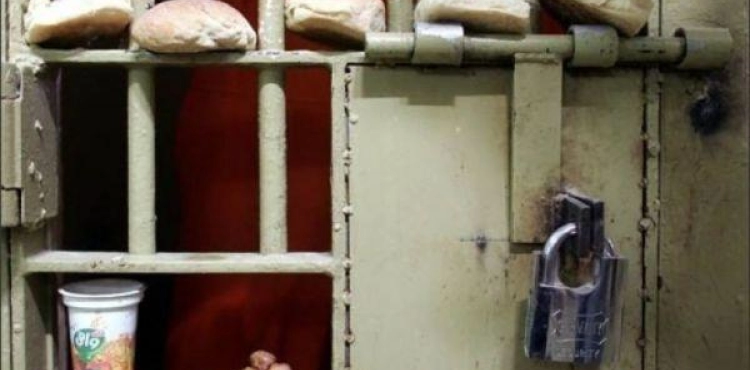More than 20 prisoners have been arrested in the Israeli prisons by the Ansadi strike with administrative prisoners on hunger strike. Most of them are held in the Negev Desert detention center. They are members of the Popular Front for the Liberation of Palestine.
The prisoners ´club said that the prisoners´ decision came after the failure of the dialogue on the issue of the striking prisoners, pointing out that their strike will be subject to the responses of the competent authorities at the occupation about the fate of the striking prisoners and the end of their administrative detention.
Ten prisoners continue their hunger strike, nine of them against their administrative detention, and one of them is demanding his right to treatment. The prisoners are: Muhammad Abu Akkar, Mustafa al-Hassanat and Hatifa Halibeh. They have been beaten for 30 days and are being held in the isolation of Nitzan al-Ramla detention center, as well as Ahmed Ghannam, Sultan Khallouf, Hamza Awwad, Munir al-Abd, Hassan Awad and Isma´il Ali. The prisoner Wajdi Atef Al Awawdeh from the town of Dura in Hebron District, who started the strike, since yesterday, 29 July, to protest the procrastination of the administration of the detention of the occupation by providing the necessary treatment for him.
The prisoner, who is 20 years old, suffers from an injury in the pelvic area. He was injured as a result of falling in his family´s house before his arrest. He underwent surgery in 2017. He was then planted with platinum in the pelvis. That the period of the status of platinum is over and needs to be another process to remove it, in contrast, the occupation authorities failed to meet his request, which exacerbated his suffering, and suffered a broken nose resulting from torture during his detention in April 2018.
The prisoner´s club pointed out that Al-Awawdeh is administratively detained and is now in the cells of the Negev Desert Detention Center.
The prisoners face difficult health conditions, which are exacerbated over time, as well as facing the procedures of the administration of the retaliatory detention centers against them, namely the isolation of their families, the denial of their families from the visit, the obstruction of visits by the lawyers to them through their repeated transfer and their detention in harsh and difficult conditions. Until the prisoner reaches the stage to make sure that his body has exhausted, and reached a stage of difficult health.












